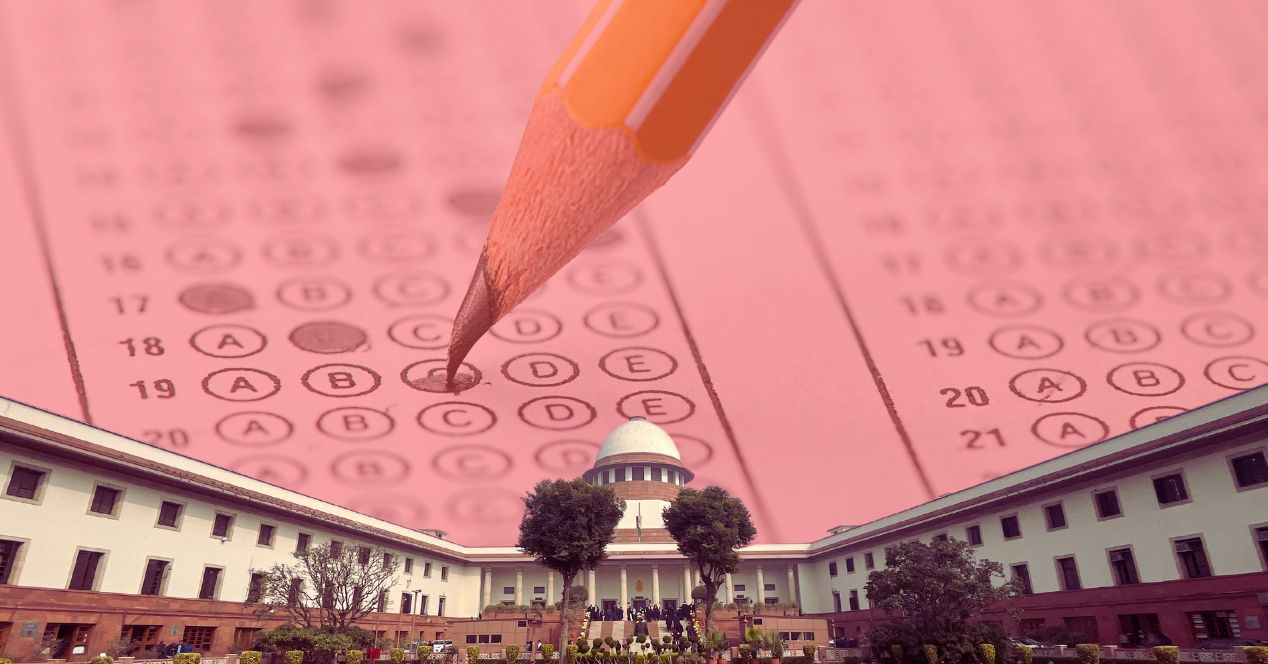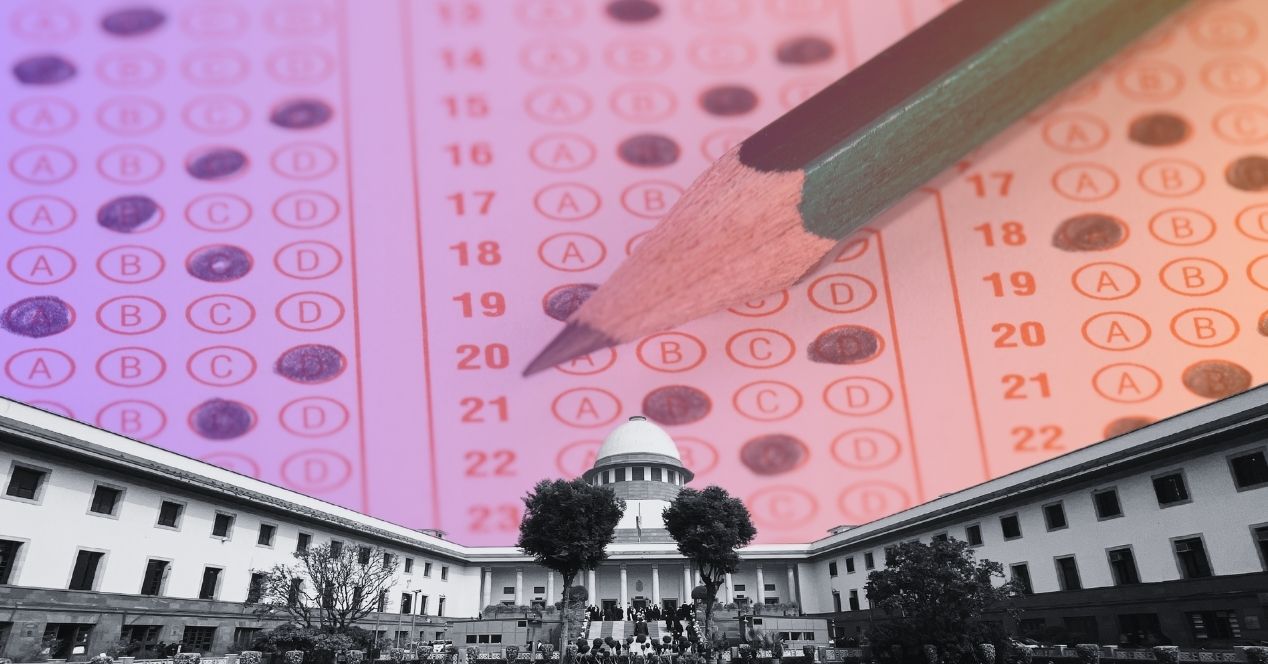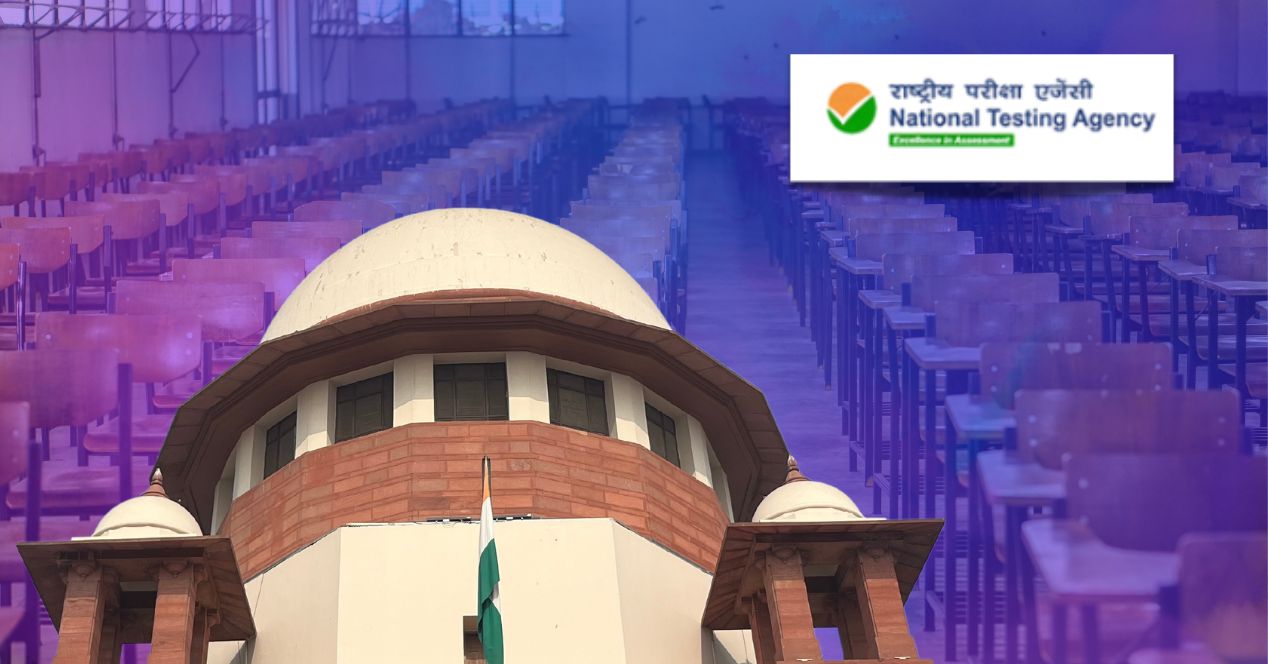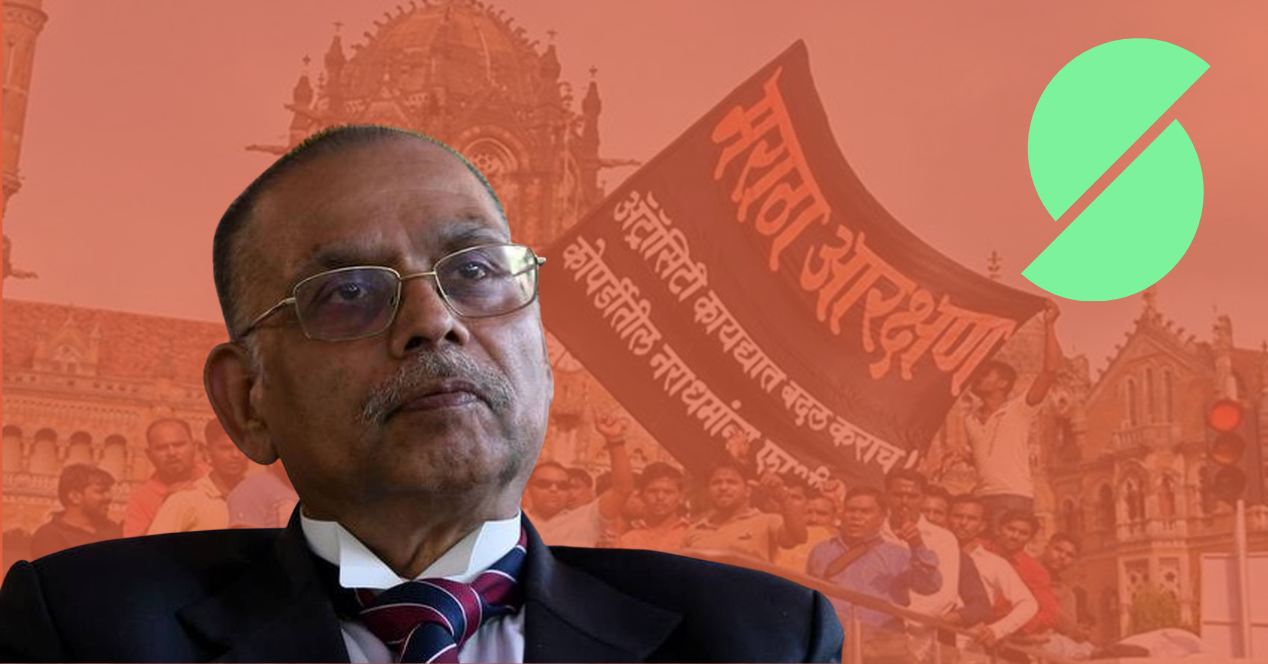Analysis
‘Private operators’ and coaching centres tampered with the 2024 NEET UG exam, argue petitioners
The Court directed a three-member expert body from IIT Delhi to clarify the position of an ambiguous question in this year’s NEET exam
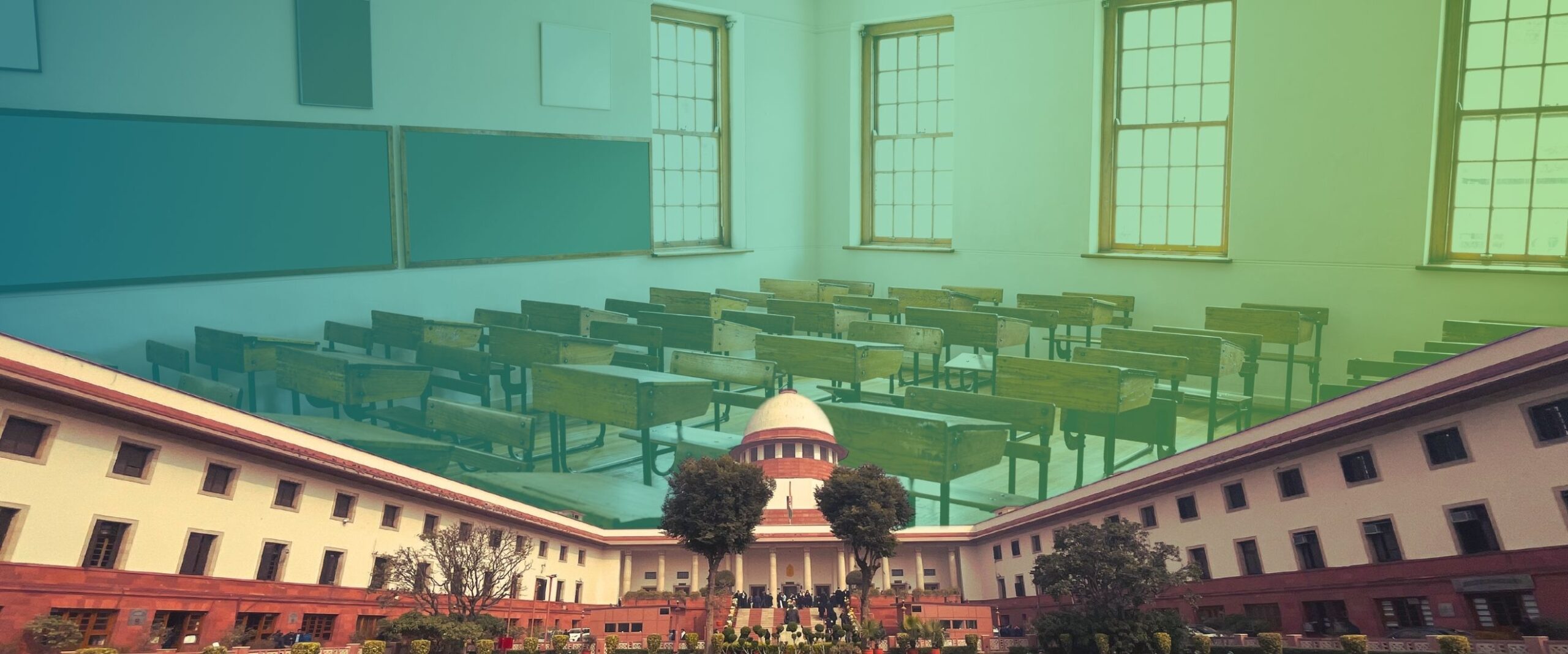
Today, a Division Bench comprising Chief Justice D.Y. Chandrachud with Justices J.B. Pardiwala and Manoj Misra continued hearing nearly 40 petitions surrounding the controversial 2024 NEET undergraduate (NEET UG) examination, for medical admissions. Several petitioners seek the cancellation of the exam conducted on 5 May 2024. They allege “widespread” leak of the question paper and are praying for the Court to direct the National Testing Agency (the NTA) to conduct a retest. The issue is also currently being investigated by the Central Bureau of Investigation (CBI).
The bench today directed a three-member expert committee from the Indian Institute of Technology Delhi (IITD) to resolve the ambiguity surrounding one disputed question in the exam. The committee is to submit its conclusions to the Court by tomorrow, 23 July 2024.
On 18 July, the Court had directed the NTA to publish centre-wise results of all candidates who appeared in the exam. On 22 July, the NTA had published the same data on its website.
Previously, the Court had noted that the paper leak was an “undisputed fact.” However, the bench noted that a retest was the last resort only if a leak was systemic and widespread.
Senior Advocate Narendar Hooda resumed the arguments on behalf of the petitioners today. He contended that there were several loopholes in the conducting of this year’s exam owing to which there was a systemic leak. The unruly involvement of private parties, he said, further tampered the process. Senior Advocate Sanjay Hegde, also for the petitioners, prayed that at the very least, a partial retest had to take place for all the qualified candidates.
The bench The bench today nudged the petitioners to show data that would help the Court placed extensive reliance on the available data in order todata in order to gauge the extent of the leak. Hooda, however, informed the bench that since the CBI probe into the matter was still ongoing, none of the petitioners were privy to the data compiled by the agency. Therefore, they could only rely on circumstantial evidence at the moment. The NTA on its part has relied on a data report compiled by the Indian Institute of Technology Madras (IITM) to argue that there were no widespread irregularities in this year’s exam. In the last hearing, Hooda had argued that the IITM report did not paint an accurate picture of the leak.
Grace marks and their disgraceful shambles: The Jhajjar NEET story
Hooda submitted that private players, such as principals of private schools, meddled with the sanctity of the exam. He drew the bench’s attention to an incident in Jhajjar, Haryana.
Here’s what happened:
This year, two sets of NEET question papers of “similar” difficulty level were prepared. Each set was stored in the vaults of State Bank of India and the Canara Bank respectively. As per protocol, at 5 am on the day of the exam, the NTA would have notified the City Coordinator—typically a principal of one of the schools which are acting as NEET exam centres—to collect the papers either from the SBI or Canara Bank.
Strangely however, in Jhajjar, on the morning of the exam, the City Coordinator collected the question papers from both SBI and Canara Bank. In all the three centres in Jhajjar, the paper from Canara Bank was distributed instead of the notified SBI paper. But in two of them, upon discovery, the wrong papers were taken back, and the correct SBI papers were distributed to the students. In lieu of the loss of time suffered by the candidates, these two centres gave extra time to the students.
The controversy arose in the third centre located in Hardayal School. Hooda informed the bench that in this centre too, the incorrect question paper from Canara Bank was distributed to the students. However, they were never notified about the mistake. Subsequently, when it was brought to light that all the students from an entire centre had attempted the wrong paper, grace marks were given to all the students. Six candidates from this centre secured a perfect score in the exam.
The Chief questioned the NTA and the Union about this incident. If the City Coordinator in Jhajjar was informed that only the SBI papers were to be collected, why did he go to Canara Bank? He asked. Was Canara Bank not informed that it was not supposed to distribute papers that day?
Solicitor General Tushar Mehta appearing for the Union and Senior Advocate Naresh Kaushik appearing for NTA, admitted that the incident in Jhajjar was confusing. They added that the “custodian” banks as well as the City Coordinator were responsible for the confusion created.
When the Chief questioned why the correct papers were later given out in only two out of the three centres in Jhajjar, Mehta had no answers. “We will look into it,” he said.
The confusion about what happened at Hardayal however, seemed to run far deeper. At one point during the hearings, Kaushik stated that what actually happened was that both the SBI and Canara Bank papers were simultaneously distributed. When the mistake was discovered, for some reason, the SBI papers were withdrawn, and the wrong Canara Bank papers were allowed to be given.
This prompted CJI Chandrachud to remark that clarity was needed. He instructed the Union and the NTA to sit with the concerned officers and set the record straight and submit a report by noon. “I don’t want to hear later on that you submitted incorrect information,” he cautioned.
A playground of private interests
Hooda then highlighted that many centres were private schools and therefore, the exam process involved several private parties. These private players, he argued, were in a position to easily tamper with the exam.
He asserted that famous “coaching hub” locations such as Kota and Sikar in Rajasthan hosted suspiciously high concentrations of successful students. “If we calculate top centres in the country with students getting more than 650 marks (the minimum mark required for government medical admissions), 38 out of 50 centres are only from Sikar,” he said.
He argued that such “concentrations” occurred due to three reasons. First, there was no standard procedure followed by any centre regarding the “sealing” of OMR sheets. This gave examiners ample time to tamper with the OMR sheets.
Second, the NTA did not require the students to submit any proof of residence during registration of the exam. This led to many candidates putting in random addresses of faraway cities, who were then allotted centres in those cities. Hooda gave the example of a candidate from Godhra, Gujarat who appeared for NEET from Belgaum, Karnataka. Further, this candidate, Hooda stated, had failed her 12th standard exams, but scored exceptionally well in NEET.
Third, he argued that NTA’s big promise of CCTV surveillance over every centre was also not foolproof. “It cannot be ruled out that these private operators are hands in gloves with the coaching centres in Kota and Sikar,” Hooda said.
Confessions made to Bihar police suggest leak occurred long before the NEET exam day
An undisputed instance of paper leak occurred in Bihar and is currently being investigated by the Bihar police. During the last hearing, Mehta had submitted that the paper leak took place on the morning of 5 May 2024 —the date of the exam and was not widespread.
Today, Hooda, relying on confessional statements made to the Bihar police, contested that some candidates received the leaked papers on 4 May 2024.
“It’s not like some peon leaked it or it was locally done. This was handiwork of a gang, “ Hooda said, “These 161 statements indicate that the leak is much more widespread in the examination.”
Hegde: At least order a retest for all students who qualified
61 students in this year’s NEET had received perfect scores. Hegde argued that a competitive exam which turned out 61 first rankers could not be trusted. When the Chief pointed out that of the 61 students who got full marks, 44 had received grace marks, Hegde quickly responded that even those 44 students had likely answered 179 of 180 questions correctly. This was still an abnormally high success rate. Therefore, he urged that a retest was essential—if not for all candidates, then at least for those who qualified. “When you suspect cancer and the tests are inconclusive, as a matter of precaution, you go into chemotherapy. You cannot take the risk of letting it metastasize,” he said.
The Supreme Court has ordered retest in a similar case
During the second half of the day, one counsel for petitioner argued that the Court was duty-bound to order a retest and had done so in the past. He relied on the decision in Tanvi Sarwal v Central Board of Secondary Education (2015). In this case, it was discovered that there were 44 “beneficiaries” of a paper leak in the All-India Pre-Medical Test exam, the predecessor of NEET. The Court had ordered a retest for all candidates. “Even if one undeserving candidate is a beneficiary, it would be a denial of claim of all deserving students,” the counsel quoted the Court’s own words from the past.
Re-NEET will result in “severe hardship”
Not all the petitioners in the case seek a retest. Today, a counsel appearing on behalf of a batch of petitioners from Maharashtra argued against a complete retest. She argued that this would put “severe hardship” upon successful students, many of whom prepared for the exam for years. She also pointed out that a retest would cause logistical difficulties.
Bench: Expert Committee of IIT Delhi to review an ambiguous question
A set of counsels brought up an ambiguous question in this year’s NEET for which NTA had awarded grace marks to some candidates.
The question was to spot the correct statement from four options.
The first option suggested that “atoms in each element are stable”, while the third option suggested that “atoms in most elements are stable.” An older edition of the NCERT books, the prescribed books for NEET, stated the first option to be correct, while the newest edition, printed in 2019, stated the third to be correct.
The petitioners argued that the third option was the only right answer since radioactive elements do not have stable atoms. The NTA maintained that since both answers were correct as per different editions of NCERT, the candidates who marked either the first or third options would be given grace marks for the question. This, Mehta explained, was because in many middle-class households, older NCERT books purchased by elder siblings were handed down to younger ones, and thus the grace marks were in their interest.
Even as the bench bemused that a question of science had become a subject of adjudication, it noted this was a “serious” issue. The Bench directed the Director of IIT Delhi to constitute a team of three experts consisting of the Director to analyse the question and provide the correct answer. The expert report is expected to be discussed in Court tomorrow.
Arguments will resume on Tuesday, 23 July 2023.

